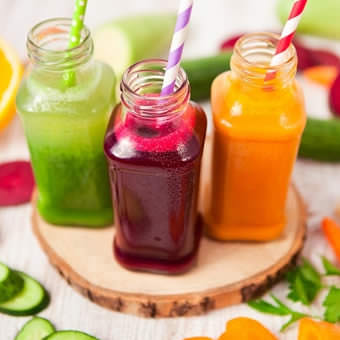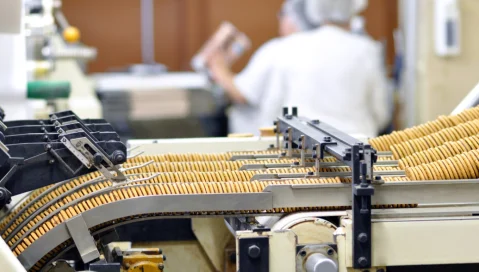Introduction
Private tag specialized foods have acquired enormous appeal in the last few years. With customers seeking distinct and individualized food alternatives, private label foodstuff have actually come to be a go-to selection for numerous. In this short article, we will certainly delve into the intricate process of private label food production, exploring the steps involved and the key players in the industry.
The Surge of Private Label Food Manufacturers in Australia
Australia has actually observed a considerable surge in private label food manufacturers. With consumers becoming much more conscious about their dietary preferences and requiring top notch items, private label food production has emerged as a financially rewarding company possibility. These makers cater to various sections, including private tag cheese, junk food producers, and more.
Understanding Private Label Food Manufacturing
Private label food production involves producing and generating food products for retailers or companies who after that market these products under their very own trademark name. This procedure permits retailers to supply private label snack food manufacturers special offerings to their customers without investing greatly in r & d or manufacturing infrastructure.

Key Tips Associated with Private Label Food Manufacturing
Step 1: Product Development and Customization
Private label food manufacturers work carefully with stores to recognize their needs and develop customized products. This action includes brainstorming sessions, marketing research, and recipe solution. Personal tag specialty foods are designed to satisfy details consumer preferences and dietary needs.
Step 2: Sourcing Ingredients
Once the product specifications are settled, private label food suppliers source top notch components from trusted suppliers. They ensure that all components meet stringent quality requirements and abide by guidelines established by relevant authorities.
Step 3: Manufacturing and Packaging
After acquiring the ingredients, private label food manufacturing starts. The production facilities make use of cutting edge tools and adhere to stringent hygiene methods to create secure and delicious food. Packaging is also an indispensable component of this step, guaranteeing that the item continues to be fresh while interesting consumers.
Step 4: Quality Control and Testing
Private label food producers conduct rigorous quality assurance checks at every stage of the production procedure. This includes testing the ingredients, monitoring production lines, and conducting sensory evaluations. These steps make certain that the final product satisfies the finest quality standards.
Step 5: Classifying and Compliance
Once the products are produced and quality checked, private label food manufacturers take care of labeling and conformity. They make certain that all information on the product tags is exact and adhere to regulatory guidelines. This action is critical to provide customers with transparent information about the product's components and nutritional values.

Advantages of Private Label Food Manufacturing
Private label food production uses numerous benefits for both stores and consumers. Allow's discover a few of these advantages:
Customization: Merchants have the freedom to develop unique products customized to their target audience, allowing them to differentiate themselves from competitors.
Cost-effectiveness: Private label food producers use economical solutions by removing the demand for sellers to buy study, development, and manufacturing infrastructure.
Control over branding: Retailers can develop their brand photo by advertising exclusive tag foods under their very own name. This enables them to establish depend on and loyalty among consumers.
Flexibility: Private label food manufacturing gives sellers with flexibility in terms of product offerings. They can conveniently adapt to changing consumer patterns and preferences.
Higher revenue margins: With minimized production costs, sellers can delight in higher profit margins on private label food products compared to branded alternatives.
Quality assurance: Private label food producers focus on quality assurance measures, ensuring that retailers obtain constant and high-grade products for their customers.
FAQs regarding Private Label Food Manufacturing
Q1: What is the role of private label food manufacturers?
A1: Private label food manufacturers play a critical duty in creating personalized food for sellers or services that market them under their own brand name name.
Q2: How does private label food manufacturing advantage retailers?
A2: Private label food production permits retailers to provide unique items, construct their brand name picture, and appreciate greater profit margins compared to branded alternatives.
Q3: Can private label food manufacturers satisfy details nutritional preferences?
A3: Yes, private label food manufacturers can develop items customized to details dietary needs and preferences, consisting of gluten-free, vegan, or natural options.
Q4: Are there any type of guidelines regulating private label food manufacturing?
A4: Yes, private label food producers must adhere to laws established by relevant authorities pertaining to ingredient sourcing, labeling, and high quality control.
Q5: Can private label food makers deal with massive production?
A5: Yes, private label food suppliers have the capabilities to take care of both small-scale and massive production based upon the seller's requirements.
Q6: How can sellers ensure the quality of private label food products?
A6: Retailers should collaborate with reputable private label food suppliers that focus on rigorous quality control procedures and have a record of providing outstanding products.
Conclusion
Private label food manufacturing offers a world of chances for stores aiming to provide unique and tailored offerings to their customers. With a streamlined procedure including item advancement, component sourcing, production, packaging, and quality control, private label specialty foods have obtained enormous popularity. By partnering with dependable private label food manufacturers in Australia or any type of other region, retailers can establish their brand name identification while enjoying cost-effectiveness and flexibility in their product offerings. So why wait? Study the exciting world of exclusive tag foods today!